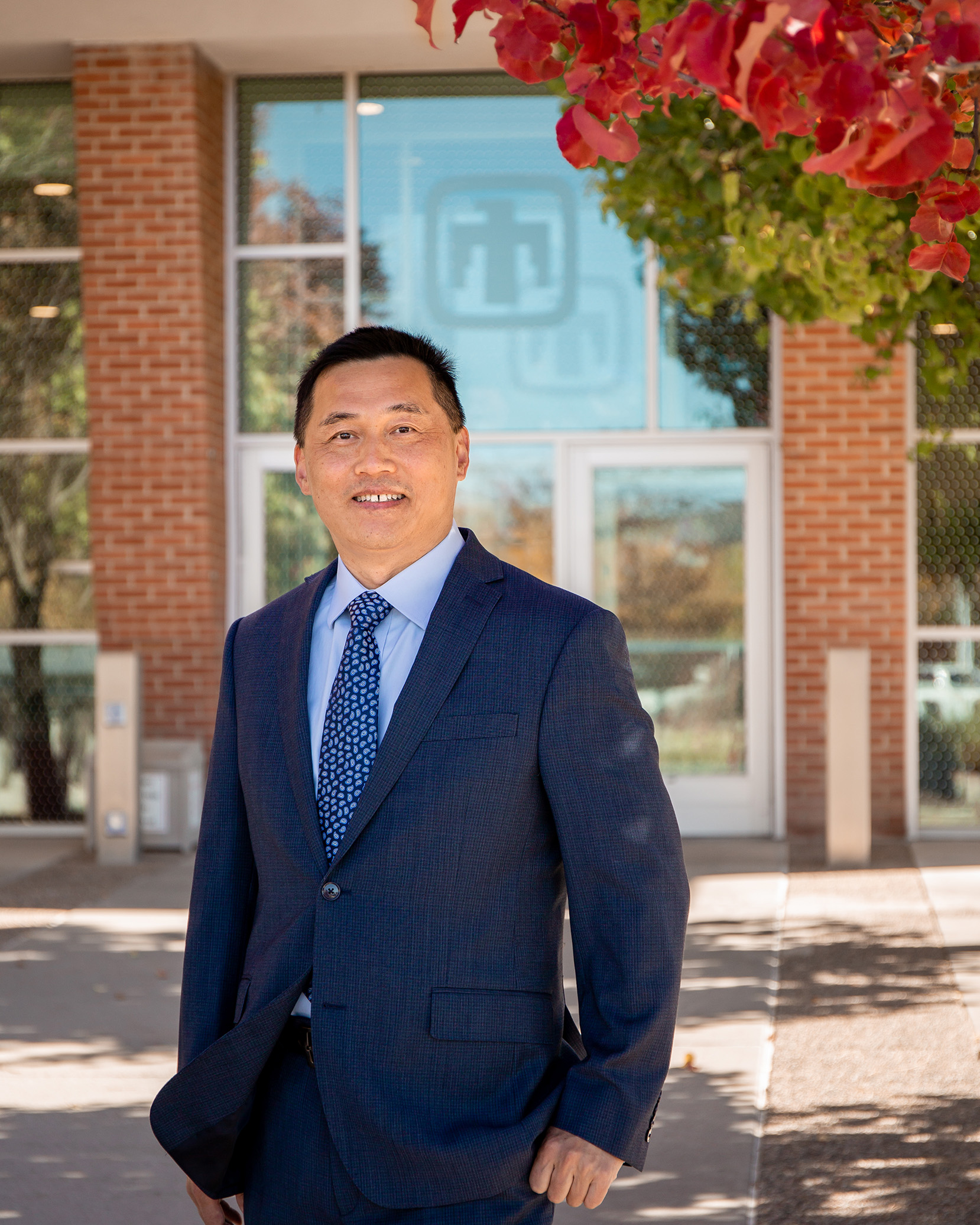
- This event has passed.
CBE Seminar: “Pressure-induced Nanoparticle Assembly” (Hongyou Fan, Sandia National Laboratories)
September 4, 2024 at 3:30 PM - 4:30 PM
Abstract:
Precise control of structural parameters through nanoscale engineering to improve optical and electronic properties of functional nanomaterials continuously remains an outstanding challenge. Previous work on nanoparticle synthesis and assembly has been conducted largely through solution chemistry at ambient pressure and relies on specific chemical or physical interactions such as van der Waals interactions, dipole-dipole interactions, chemical reactions, ligand-receptor interactions, etc. In this presentation, I will introduce a new pressure-induced assembly and fabrication method that uses mechanical compressive force applied to nanoparticles to induce structural phase transition and to consolidate new nanomaterials with precisely controlled structures and tunable properties. By manipulating nanoparticle coupling through external pressure, instead of through solution chemistry, a reversible change in their assemblies and properties can be achieved and demonstrated. In addition, over a certain threshold, the external pressure will force these nanoparticles into contact, thereby allowing the formation and consolidation of one- to three-dimensional nanostructures. Through pressure induced nanoparticle assembly, materials engineering and synthesis become remarkably flexible without relying on traditional crystallization process where atoms/ions are locked in a specific crystal structure. Therefore, morphology or architecture can be readily tuned to produce desirable properties for practical applications. (SAND2024-00611O) Sandia National Laboratories is a multimission laboratory managed and operated by National Technology and Engineering Solutions of Sandia, LLC., a wholly owned subsidiary of Honeywell International, Inc., for the U.S. Department of Energy’s National Nuclear Security Administration under contract DE-NA0003525.

Hongyou Fan
Department Head and Manager of Geochemistry
Hongyou Fan currently serves as the Head/Manager of the Geochemistry Department, DOE Office of Science Sandia BES Geoscience and Separation Science Program Manager, and a Distinguished Member of Technical Staff at Sandia National Laboratories. He received a B.S. degree from Jilin University, an M.S. degree from the Changchun Institute of Applied Chemistry, and a Ph.D. degree from University of New Mexico. He was a postdoctoral fellow at Sandia National Laboratories, Albuquerque, New Mexico, before working there full time. His research has been focused on development of interfacial self-assembly processes for preparation of well-defined nanoscale colloids and highly ordered arrays that enable favorable charge and energy transport leading to broad applications in nanoparticle nanoelectronics, bioimaging/sensing, efficient photocatalysts for clean energy, targeted photodynamic therapy. He pioneered the development of the pressure induced mesoscale nanoparticle assembly and synthesis that enable new configurations and properties of a wide range of nanomaterials (e.g., metal, semiconductor, magnetic nanoparticles, etc.) and tunable exchange coupling at angstrom level and reversible manner to achieve exchange coupling. Hongyou Fan is a Fellow of MRS, ACS, and APS. He is a recipient of the MRS Mid-Career Researcher Award and MRS Fred Kavli Distinguished Lectureship Award in Nanoscience. He was selected as the Asian American Engineer of the Year in 2012 and the Society of Asian Scientists and Engineers Career Achievement Award winner in 2022. Most recent invention in the areas of nanomaterials synthesis and nanoelectronic applications recognized by six independent R&D 100 Award in recognition of the most significant and innovative technologies and three Federal Laboratory Consortium’s Outstanding Technology Development Award. He received the DOE Sandia National Laboratory Directed Research and Development Award for Excellence in 2007. He holds 21 US patents and co-founded LUNANO LLC through licensing his patented technologies, which led to the Federal Laboratory Consortium Technology Transfer Award.
